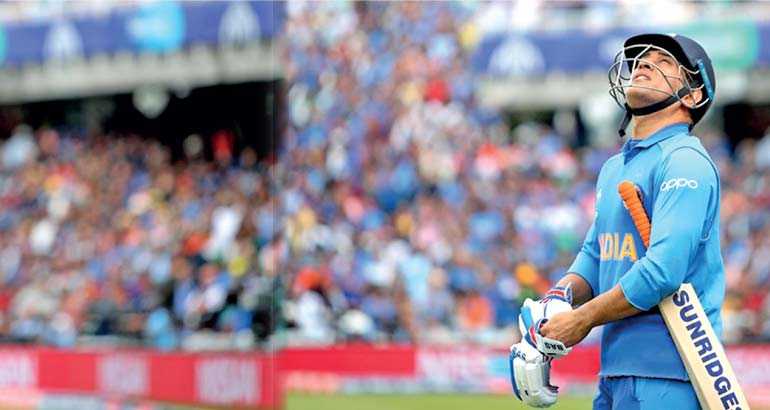Saturday Feb 21, 2026
Saturday Feb 21, 2026
Monday, 17 August 2020 00:30 - - {{hitsCtrl.values.hits}}

NEW DELHI (Reuters): The crestfallen look on Mahendra Singh Dhoni’s face was beamed across the subcontinent as the then 23-year-old — his silky black mane cascading on his broad shoulders — appeared gutted after a nightmarish international debut in 2004.
Dhoni had fallen for a first ball duck in Chittagong, and in the cruellest of manner — run out.
For much of the next decade-and-half, Dhoni subjected rivals to such agonies — from behind the stumps, with the bat, and as a shrewd captain of a highly successful team.
Three and half months after that forgettable debut, Dhoni announced his arrival with a breath-taking 148 off 123 balls against Pakistan in Visakhapatnam.
He wielded the willow like a mace and his batting was less technique and more pyrotechnic.
He did not have the steely defence of a Rahul Dravid or the silken touch of a VVS Laxman but Dhoni made up with his muscular ingenuity.
He converted the yorker into a scoring opportunity with his trademark ‘helicopter shot’, a culmination of violent convulsions involving his arm, wrists and torso.
Dhoni wrote his own keeping manual too, barely moving hands sideways before gathering the ball and rather thrusting them down to pull off electric stumpings.
His biggest legacy, however, would be as India’s ‘Captain Cool’ who was also one of one-day cricket’s greatest finishers.
Dhoni is the only captain to win all ICC trophies — T20 World Cup in 2007, 50-overs World Cup in 2011 and Champions Trophy in 2013. Under him, India also became the top ranked test nation in 2009.
And he led a cricket-mad nation of 1.3 billion with ice in his veins.
“It’s almost as if he doesn’t have them; a performance-enhancing gift from birth,” India’s former mental conditioning coach Paddy Upton wrote about Dhoni’s control over emotion in his memoir.
Inspiring decision
Dhoni’s penchant for taking inspiring decisions was best illustrated in the tense final of the 2007 World Cup, when he famously asked an unheralded Joginder Sharma to bowl the final over in a tactical masterstroke against Pakistan.
He also transformed himself into a formidable ‘finisher’, securing India’s 2011 World Cup victory by hitting a six in the final against Sri Lanka.
Age, however, appeared to catch up with him in the World Cup in England last year.
He struggled to time the ball even against mediocre attacks and failed to provide the late assault that he once routinely delivered.
Those wild, flowing tresses that was once a rage among the youths in rural India, have now been replaced by greying sideburns.
An enigma throughout his career, Dhoni quit test cricket in the middle of India’s 2014 series in Australia.
On Saturday, he again shocked an unsuspecting nation, announcing his exit from international cricket with a cryptic Instagram message.
His fairytale rise from India’s cricketing backwaters of Jharkhand sounds like a storyline straight out of a Bollywood script. In reality, it’s the other way round.
Known for his fondness for bikes and military fatigue, Dhoni’s stellar career inspired a 2016 biopic “M.S. Dhoni: The Untold Story” which was a roaring box office success.
Such has been his influence that successor Virat Kohli still considers Dhoni his captain.
“The world has seen achievements, I’ve seen the person. Thanks for everything skip. I tip my hat to you,” Kohli said on Twitter on Saturday.